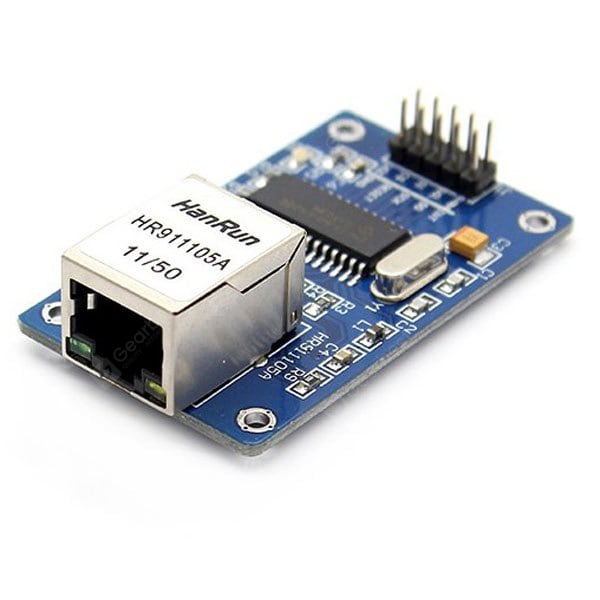Mbed library for ENC28J60 Ethernet modules. Full support for TCP/IP and UDP Server, Client and HTTP server (webserver). DHCP and DNS is included.
Dependents: mBuino_ENC28_MQTT Nucleo_Web_ENC28J60 Nucleo_Web_ENC28J60_ADC Serial_over_Ethernet ... more
Library for ENC28J60 Ethernet modules.

Ported to mbed from Norbert Truchsess's UIPEthernet library for Arduino. Thank you Norbert!
- Full support for persistent (streaming) TCP/IP and UDP connections Client and Server each, ARP, ICMP, DHCP and DNS.
- Works with both Mbed OS 2 and Mbed OS 5.
Usage:
- Import the library into your project.
- Add
#include "UipEthernet.h"tomain.cpp - Create one instance of the UipEthernet class initialized with the MAC address you'd like to use and SPI pins of the connected Mbed board.
Example programs:
Import programWebSwitch_ENC28J60
HTTP Server serving a simple webpage which enables to remotely turn a digital output on/off. Compile, download, run and type 'IP_address/secret/' (don't forget the last '/') into your web browser and hit ENTER.
Import programHTTPServer_Echo_ENC28J60
A simple HTTP server echoing received requests. Ethernet connection is over an ENC28J60 board. Usage: Type the server's IP address into you web browser and hit <ENTER>.
Import programTcpServer_ENC28J60
Simple TCP/IP Server using the UIPEthernet library for ENC28J60 Ethernet boards.
Import programTcpClient_ENC28J60
Simple TCP/IP Client using the UIPEthernet library for ENC28J60 Ethernet boards.
Import programUdpServer_ENC28J60
Simple UDP Server using the UIPEthernet library for ENC28J60 Ethernet boards.
Import programUdpClient_ENC28J60
Simple UDP Client using the UIPEthernet library for ENC28J60 Ethernet boards.
Import programMQTT_Hello_ENC28J60
MQTT Client example program. Ethernet connection is via an ENC28J60 module.
Diff: utility/enc28j60.h
- Revision:
- 15:53715cc81c63
- Parent:
- 11:647d53d146f1
--- a/utility/enc28j60.h Tue Sep 03 09:16:55 2019 +0000 +++ b/utility/enc28j60.h Sat Sep 07 17:42:42 2019 +0000 @@ -240,12 +240,12 @@ // The RXSTART_INIT should be zero. See Silicon Errata: // Sometimes, when ERXST or ERXND is written to, the exact value, 0000h, is stored in the Internal // Receive Write Pointer instead of the ERXST address. -// Work around +// Work around: // Use the lower segment of the buffer memory for the receive buffer, starting at address 0000h. // For example, use the range (0000h to n) for the receive buffer, and ((n + 1) to 8191) for the transmit buffer. #define RXSTART_INIT 0x0 // Receive buffer end. Make sure this is an odd value (See Rev. B1,B4,B5,B7 Silicon Errata 'Memory (Ethernet Buffer)') -#define RXEND_INIT 0x11CB // = (3 * 1518) + 1 +#define RXEND_INIT (0x1FFF - 0x1800) // 0x1800 = 512 * 12 // Start TX buffer RXEND_INIT + 1 #define TXSTART_INIT RXEND_INIT + 1 // end TX buffer at end of mem
